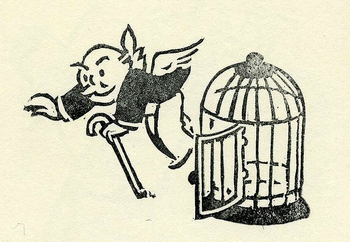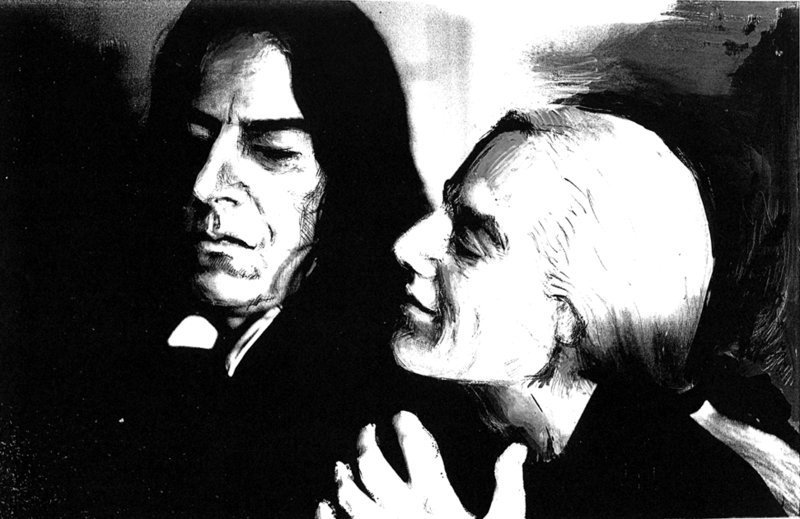Entries in Sin (5)
How Love Covers A Multitude of Sins
 Monday, November 9, 2015 at 08:50PM
Monday, November 9, 2015 at 08:50PM A long time ago one of my best friends was having difficulty resting in the grace of God. He was plagued by the memory of sin and tormented by the guilt he carried. He was a Christian--a committed Christian by nearly any standard--yet his heart was not at rest. I had no patience for problems like this. My approach was to confidently (and ignorantly) quote a Bible verse and move on to something more pleasant.
“Seriously man, give it a rest,” I said. “The Bible says ‘Love covers a multitude of sins.’”
“Yes, but how?”
“Who cares how? I’m just glad it does.”
I was selfish: my version of the truth conveniently served me. There seemed only one possible interpretation of this verse--God loved me, and he covered my sin. Like so many things, I was technically right, yet completely missed God's heart.
This one exchange, uttered decades ago, recently found its way to the surface of my thoughts again. How does love cover sin? Whose love? And why? While I was correct that the love of Jesus is adequate for our guilt and shame, it turns out I quoted a verse that has very little to do with the sacrifice of Jesus. Here’s the actual verse in a slightly fuller context:
The end of all things is near. Therefore be clear minded and self-controlled so that you can pray. Above all, love each other deeply, because love covers over a multitude of sins. Offer hospitality to one another without grumbling. Each one should use whatever gift he has received to serve others, faithfully administering God's grace in its various forms. (I Peter 4: 7- 10)
Peter was talking not about the sacrificial love of Jesus, but rather the love we are called to demonstrate toward others. Peter expected the imminent return of Jesus, so he instructed us to think clearly, act reasonably, and pray hard. The intended result leads us to love deeply; we can cover the sins of others. The Spirit of God, speaking through Peter, is calling us to do for others what Jesus has done for us.
I can still hear my friend’s voice, “Yes, but how?” Perhaps it’s time to suggest three possibilities from Peter's words:
§ Love covers sin by filling the void: When we see the sins of others we have a choice; we can rush to expose the sinfulness we see, spreading guilt and condemnation, or we can come to the aid of those who are the victims of sin. We can become God's police force and blow the whistle on sinfulness, or we can become God's ambulance and provide triage to the wounded. All sin comes with a price. Someone, somewhere is paying the price. We are called to cover the losses left behind by sin: a husband leaves his wife and child--who will fill the void for a suddenly- single mother? A government exploits the people it should serve--who will serve the unmet needs of the people? We have a choice: crusade against injustice or love those in need.
§ Love covers sin by 'gifted service': In a practical expression of his grace, God himself lavishes gifts beyond reckoning and directs us to employ these gifts in the service of others. Too many believers revel in the crazy generosity of God assuming it's all about them. Do we see God's saving action as a hand-out to us or an invitation to join him in rescuing others? The way of the world is to receive a gift and enjoy it for our own pleasure. That's what consumers do. The way of the kingdom is ask the Father, “what would you like me to do with this?” That's what disciples do.
§ Love covers sin by offering hospitality: God's love serves people, especially strangers. The New Testament word for “hospitality” suggests showing love toward the stranger, the foreigner, and the outcast. It suggests quite literally that we should make a place for others. It's not as if there are a limited number of seats at the Father's banquet table. Our assignment is to joyfully welcome others. When we add another place at the table we prepare ourselves for the day when the Father will say, “you really did it for me.”
Whatever the Father has done for us, he encourages us to do for others. His gifts come with the empowerment for us to give them again and again. Jesus told Peter and the disciples, "freely you've received, therefore freely give" (Matthew 10:8) Every benefit we have ever received from the Father is also an empowerment to give to others. It will cover a multitude of sin--but don't take my word for it, take Peter's.
How To Talk About Sin?
 Thursday, October 8, 2015 at 03:44PM
Thursday, October 8, 2015 at 03:44PM  Sin is ravaging the church today, but the old ways of talking about sin clearly do not help us. We have to find new ways of talking about it. Could this be true—the degree to which we choose to vilify the sins of others is the degree to which we feel compelled to hide our own? That’s a formula for alienation without and cancer within.
Sin is ravaging the church today, but the old ways of talking about sin clearly do not help us. We have to find new ways of talking about it. Could this be true—the degree to which we choose to vilify the sins of others is the degree to which we feel compelled to hide our own? That’s a formula for alienation without and cancer within.
Our need is great: God’s people, who the Bible describes as “holy and beloved,” and “a royal priesthood,” are suffering the effects of sin. In North America church-going Christians are shipwrecked on the same shoals of those who do not claim to walk with God. Sin—my sin—is all the more devastating among we who claim freedom in Christ. The church, God’s future bride, and the “pillar and support of the truth” is unable to attain her divinely appointed destiny because the effects of sin are not only personal, but also corporate.
These three: the personal costs of sin, the corporate weakness caused by sin, and the loss of our destiny, each cry out for our attention:
The Personal Costs of Sin
Sin isn’t about breaking the rules: it’s about breaking relationship. Consider Adam and Eve: their sin did not cause God to stay away from the Garden. Our first parents hid from the Creator. They tried to hide their nakedness from one another. What was broken was their ability to relate to God, not God’s ability to relate to them. What was broken was their ability to see the beauty of God’s work in their spouse. Sin does, indeed, cause separation, but we are the ones running, and we’re running from the one who knows us best and loves us most; we are running from each other.
Corporate Weakness Caused by Sin
When the community of faith ignores its own sin the entire congregation is weakened. There was a time when Christian community life evoked a sense of awe among its own people: we saw the presence of God in one another and loved one another because God we could see God’s favor on every person gathered. (Take a moment to see the glory of the early church, depicted in Acts 2:42-47 and Acts 4:31-35.)
We are not limited to Bible times to see the possibilities God’s people. When Rome was in decline, Celtic Christians burned bright a thousand miles away. The friends of Saint Francis were a joyful loving community while Europe was in darkness. The Moravian and Wesleyan communities testify to the beauty of holiness. Even our own personal experiences offer glimpses of the order and peace when God’s people dwell together in unity. Sadly, the consequences of sin go beyond the me-me my-my choices we make. Personal sin erodes the strength of the church.
Loss of Our Destiny
Finally, our message and mission as God’s people are lost when we ignore the dreadful cost of sin. Do we need to elaborate? What glory does a church gain by calling out the sins of others while ignoring the sin within? We criticize those outside the church and turn a blind eye to our own practices. We rank sin and (unsurprisingly) consider the sins of unbelievers worse than our own. We cry out against the sexual habits of others while our own sexuality falls far short of God’s good intentions. We condemn the greed of others while we build ever-bigger church silos. Examples abound: the world doesn’t care whether the church is missional or attractional if they smell the same scent of death among us.
Old Sin, New Ways
If we dare talk about sin we must do so personally first. And second. If we demonstrate the joys and blessings of obedience our talk of sin becomes sound counsel: “Here is God’s best intention for you—anything else falls short of the quality of life for which you were born.”
There is beauty in holiness, adorned in the humility of a people who know they are forgiven. This is the beauty of Heaven, where God resists the proud but gives grace to the humble. That starts with me. The world desperately needs the aroma of the bread of life, not the harsh stink of criticism and judgment. Imagine the savor and beauty of a holy people. Perhaps we could start a conversation about sin by envisioning the abundant life Jesus offers?
Friend of Sinners, No Friend to Sin
 Thursday, October 1, 2015 at 02:19PM
Thursday, October 1, 2015 at 02:19PM  It’s an everyday observation now: Jesus was a friend to sinners. I read or hear it nearly everywhere I turn—so much, in fact, I wonder if we’ve thought it through completely. Let’s give it a try today:
It’s an everyday observation now: Jesus was a friend to sinners. I read or hear it nearly everywhere I turn—so much, in fact, I wonder if we’ve thought it through completely. Let’s give it a try today:
One of the most amazing (and challenging) things about Jesus is he's a friend to sinners, but no friend to sin. Jesus is amazing because of his great love for everyone; he lived, died, and rose again for everyone. Jesus is challenging because he never once ignored the dreadful impact of sin. Even so: sinners found Jesus attractive. They were drawn to him.
Years ago I gave up on the phrase “Love the sinner, hate the sin” because it was too easy to repeat the phrase and ignore the instruction. In practice, this tired old phrase was more about hating the sin and rarely about loving the sinner. I’ve never seen anyone attracted to a church that proclaimed: “Love the sinner, hate the sin.” It’s like saying, “We love you but we find your actions revolting and ugly.”
But now the cultural tide has shifted to “Love the sinner, ignore the sin.” This doesn’t help either: ignoring sin is like ignoring cancer. (Churches would never say this phrase out loud but it is frequently lived out before our eyes.) Ignoring sin is like saying, “God loves you, and we really don’t care whether you are headed for heartbreak or destruction.”
So then, how should we see—and talk about—sin? I have four suggestions, not for churches, but for each student of Jesus:
First, every student of Jesus must see sin as something serious: deadly serious. Jesus understood the dangers of sin so acutely he sacrificed his very life to hold back the consequences of sin. To ignore sin is to ignore the grave results of sin, not only in the next life, but in this life as well.
Second, we must separate sin from legalism. To the degree we see sin as “rule-breaking” we will see God as merely a Judge. Make no mistake, God is a Judge, and God is the only proper Judge—but he is far more than a Judge. He is nearly everything and everyone in the courtroom: the judge, the jury, the witness, the attorney, and even the accused. He is everything except the Accuser. God's courtroom is ultimately a place of freedom. This is the transformation we need: to see the meaning of sin more as "I'm in trouble" rather than "I'm in trouble with God."
Third, we must see sin as a sickness, a Pandora-virus loosed upon creation from nearly the very beginning. Sin is a cancer of the soul, and obesity of the will, and a mental illness. Sin is caught, and it is taught. It is the result of heredity and the result of behavior. To the degree we see sin as sickness we will see Jesus the Physician, and we will offer ourselves to him for his remedy. Jesus loves us fully, completely, utterly: so much he will pay any price in order to help us avoid the pain, cancer, and suffering of sin. If there is any hatred of sin, we should hate sin the way a parent hates the cancer in a child.
And finally, we must see sin as foolishness and vanity. Sin never satisfies; it only intensifies. Sin is like drinking salt water: those who drink will thirst again with a maddening thirst: greed leads to idolatry; rage leads to violence; and sensuality leads to hopelessness. The Book of Common Prayer instructs us to pray, “Have mercy upon us miserable sinners.” The reason we are miserable sinners is because sin makes us miserable. By contrast, a healthy relationship with the Creator means drinking deep of God’s Spirit, which satisfies and transforms us into a source of fresh water for others.
Imagine Jesus, the friend of sinners, sitting at a feast with tax collectors, drunkards, and prostitutes. He leans toward them all and says, “It’s OK: because you’re my friends I give you permission to ruin your life.” What kind of friend would Jesus be?
Learning From Our Sin
 Tuesday, March 31, 2015 at 08:48AM
Tuesday, March 31, 2015 at 08:48AM  Here’s the pattern: I choose sin, which is bad enough. Worse still—afterward—the voice in my head tries to drag me deeper still. This is the voice of the Adversary: he chants enticement before my sin and shouts condemnation after. His is a voice skilled in subtle influence followed by paralyzing guilt. It’s a voice filled with accusation. He is a liar and the father of lies; lies are his native tongue.
Here’s the pattern: I choose sin, which is bad enough. Worse still—afterward—the voice in my head tries to drag me deeper still. This is the voice of the Adversary: he chants enticement before my sin and shouts condemnation after. His is a voice skilled in subtle influence followed by paralyzing guilt. It’s a voice filled with accusation. He is a liar and the father of lies; lies are his native tongue.
But even in the wreck of my God-awful choices there is another voice. After my sin comes another still, small voice. It sounds like a storytelling prophet trying to open the eyes of a privileged king. “Return to me,” it whispers, “and I will return to you.” It is the voice of Jesus asking Peter, “Do you love me?”
Sin always brings death, but Jesus is no mere medical examiner doing a post-mortem. He raises the victim to life.
This is the glory of God: he speaks to us even in our sin. The Great Alchemist turns our sin into the stuff of restoration. His message is restoration, and what’s more, he takes our defeat and turns it into the very fabric of instruction. Have you ever learned from your sin? God is not only ready to forgive; he is eager to teach. If we are open to God’s voice, even our sin become grace in his hands. He will show us the path and correct our steps, not by insisting on obedience but by revealing our hearts. Not by counting ours sins against us, but by teaching us a new way to live.
After I choose anger, Jesus wants to reveal its source, and heal the weakness that led to sin. After I choose greed, Jesus wants to reveal my insecurity, and heal the weakness that led to sin. After I choose lust, Jesus wants to reveal my desire, and heal the weakness that led to sin. After I choose judgment, Jesus wants to reveal my pride, and heal the weakness that led to sin.
Jesus is not the kind of person who simply says, “Go, and sin no more.” He also makes his command possible. What he asks, he empowers. He takes us to the source and gives us hope. Resurrection isn’t just for Jesus; it’s for us. It’s not just for the end of days, it’s so we can walk in newness of life. Sin puts us in the tomb; Jesus rolls away the stone—as often as we need.
Sinners in the Hands of Willy Wonka
 Thursday, February 23, 2012 at 12:33AM
Thursday, February 23, 2012 at 12:33AM  Between the efforts of Johnny Depp, Gene Wilder, and Roald Dahl most of us know that five children entered Willy Wonka’s chocolate factory one cold British morning and experienced a trial like no other. Before the day’s end four of the children were weighed, measured, and found wanting--their shortcomings revealed to all. The fifth child, Charlie Bucket, was proven kind and virtuous, and received a reward beyond all reason.
Between the efforts of Johnny Depp, Gene Wilder, and Roald Dahl most of us know that five children entered Willy Wonka’s chocolate factory one cold British morning and experienced a trial like no other. Before the day’s end four of the children were weighed, measured, and found wanting--their shortcomings revealed to all. The fifth child, Charlie Bucket, was proven kind and virtuous, and received a reward beyond all reason.
The four rejected children were spoiled, each in their own way. They had “gone bad” the way a peach spoils when left on the kitchen counter too long.
In the language of the scripture, these children were sinners.
Wait--did you recoil when you encountered the word sinner? “Oh no!” you protest, “The children had gone bad because their parents had failed them.”
- Augustus Gloop had been over-fed by a doting mother until he could not control his appetite;
- Violet Beauregard had been indulged by parents living vicariously through their child;
- Veruca Salt was a brat because her father had never told her “no;”
- Mike Teavee was an odious, unruly boy because his parents had surrendered him to the electronic babysitter.
No reader (or viewer) could fault Mr. Wonka for separating the children from the factory: he did not give them the chocolate factory because it would have destroyed the children completely and the children would have damaged the factory--along with those who lived and worked there.
These children were, in the very words of Roald Dahl, “spoiled.” They were not rejected because they broke the house rules, they were sent away because their child-like nature had been corrupted into monstrous distortions of their true potential, their true calling. Willy Wonka did not follow the children about the factory, rule-book in hand, eager to cite them for any violation. He did not enforce regulations or demand perfection. He simply wanted to give away his creation to those capable of stewarding the factory by the virtue of their heart, a heart in tune with the maker.
The word spoiled is useful image for understanding sin. The harm of sin is not lawbreaking, but that it mars the image of God in us. Sin spoils us for our true purpose. Sin is not a failure of effort or will, it is a failure of our true nature. Sin is bad because it is bad for us, and it makes us bad for those around us. We have, quite literally “gone bad,” no longer fit for our highest and best calling. To step into paradise as spoiled brats would ruin us further and perhaps ruin the factory as well.
When we are spoiled (whether by our parents or our own choices) we lose the ability to see God’s creation and purpose for what it really is: an invitation to come and live with him forever. We are created to live in harmony with our Maker, but how can we do so if we think him a tyrant, and ogre, or a nit-picking perfectionist? We were created to live in a garden tailored precisely to our needs, but how can we do so if we think our greatest need is to satisfy ourselves at the expense of the garden or our neighbors? He is too good a Father to leave us uncorrected: he wants to make us fit for home again.
When followers of Jesus persist in seeing sin as a violation of the rules they miss the offer of abundant life. The Father is not fastidious record-keeper, charting our performance moment by moment. He is, however, a wise caretaker, both of our souls and his world. He longs to free us from sin because it will also release us into a freedom unbefore imagined. He calls us to the perfection of completion that we might drink deeply of the river of life.
James, the brother of Jesus, assures us that “the wisdom that comes from heaven is first of all pure; then peace-loving, considerate, submissive, full of mercy and good fruit, impartial and sincere.” It is the wisdom of obedience: not score-keeping obedience, but obedience that leads to purity and peace.
There is no shortage of golden tickets to admit us to the factory. Our greatest need is to enter unspoiled or renewed, so we can live there forever.

